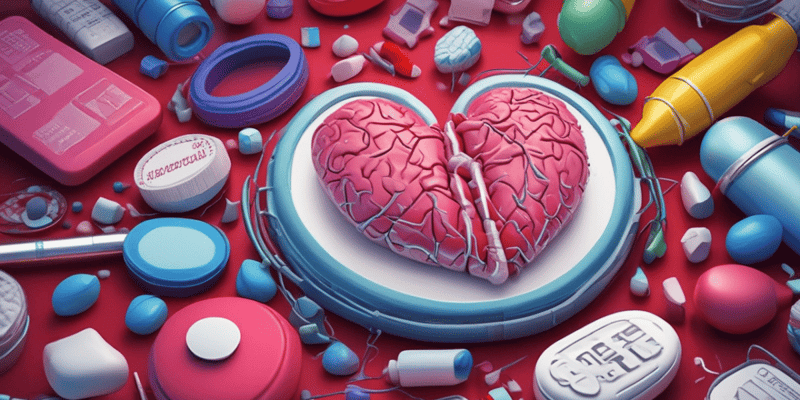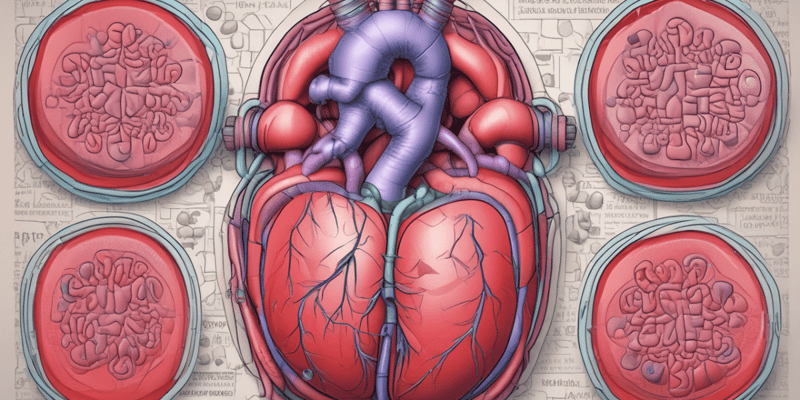Podcast Beta
Questions and Answers
What is the primary mechanism of action of Angiotensin Converting Enzyme Inhibitors (ACEI)?
Which condition is NOT an indication for using Angiotensin Converting Enzyme Inhibitors (ACEI)?
What is a potential side effect associated with the use of Captopril?
Which of the following is a significant adverse effect of Angiotensin Converting Enzyme Inhibitors?
Signup and view all the answers
Which statement accurately reflects the black box warning for ACE inhibitors?
Signup and view all the answers
Study Notes
Angiotensin Converting Enzyme Inhibitors (ACEI)
- ACEIs are a drug class that inhibits the conversion of angiotensin I to angiotensin II
- Angiotensin II is a potent vasoconstrictor
- ACEIs are indicated for the treatment of hypertension, acute coronary syndrome (ACS), chronic kidney disease, stroke prevention, and heart failure
- Two common ACEIs are lisinopril (Zestril) and captopril (Capoten)
-
Side Effects (SE) and Adverse Effects (AE) of ACEIs include:
- Kidney injury
- Angioedema (swelling of the face, lips, tongue, and throat)
- Cough
- Hyperkalemia (high potassium levels in the blood)
- Black Box Warning: ACEIs are teratogenic (can cause birth defects) and should not be used during pregnancy.
- Captopril can specifically cause neutropenia (low white blood cell count)
Studying That Suits You
Use AI to generate personalized quizzes and flashcards to suit your learning preferences.
Description
This quiz covers the essential aspects of Angiotensin Converting Enzyme Inhibitors (ACEIs). Learn about their mechanisms, indications, common medications, side effects, and important warnings. Ideal for students and healthcare professionals alike.




